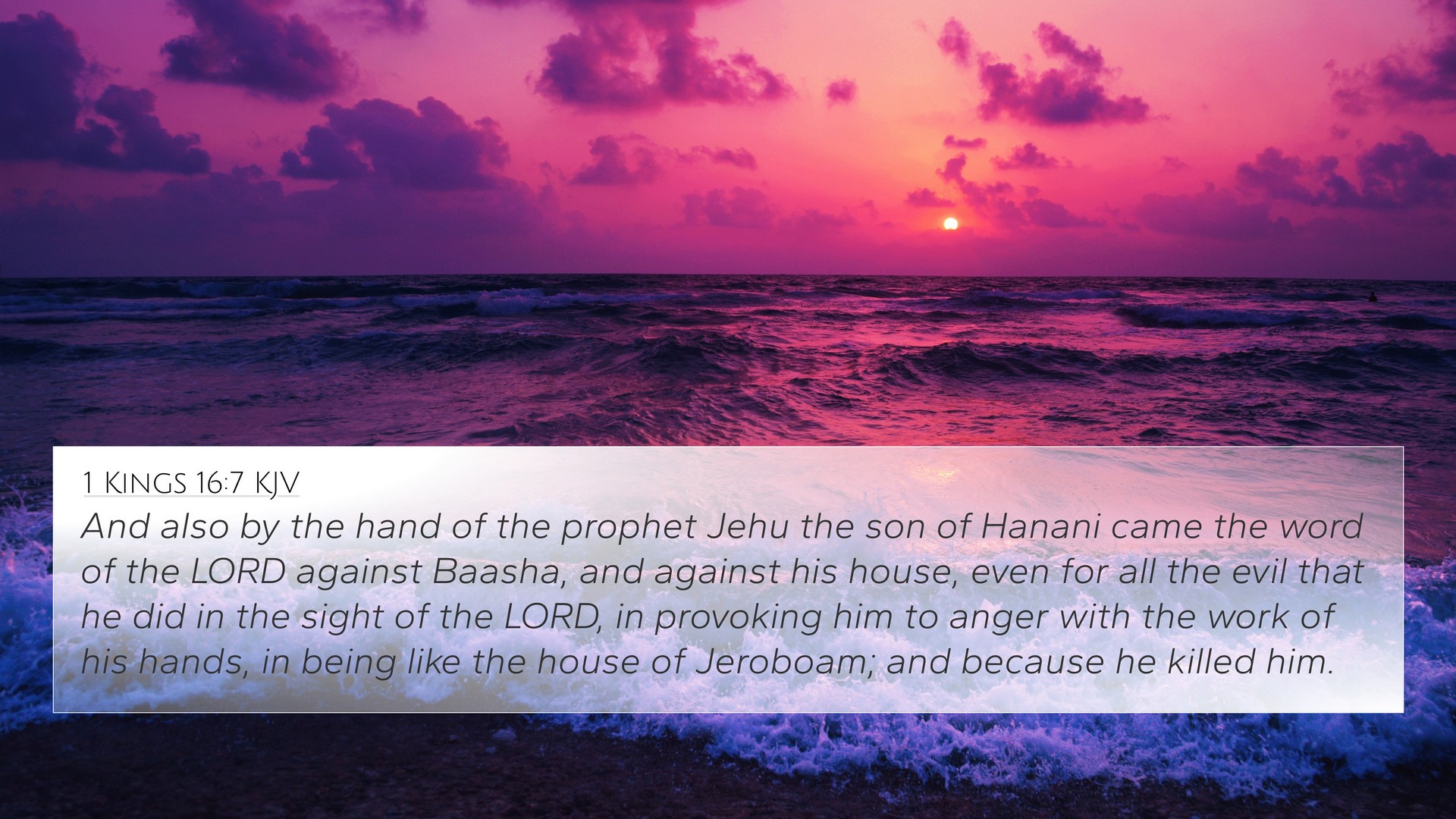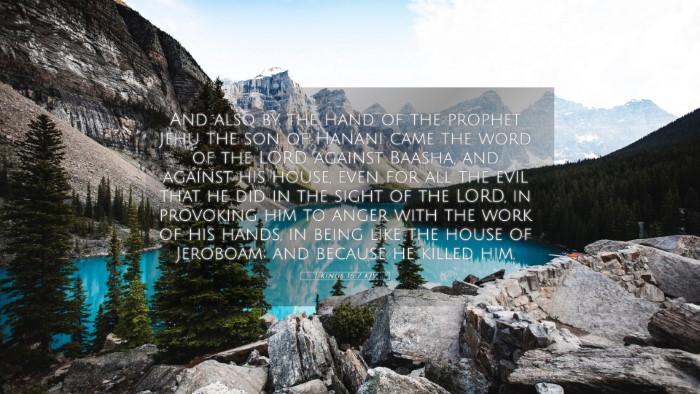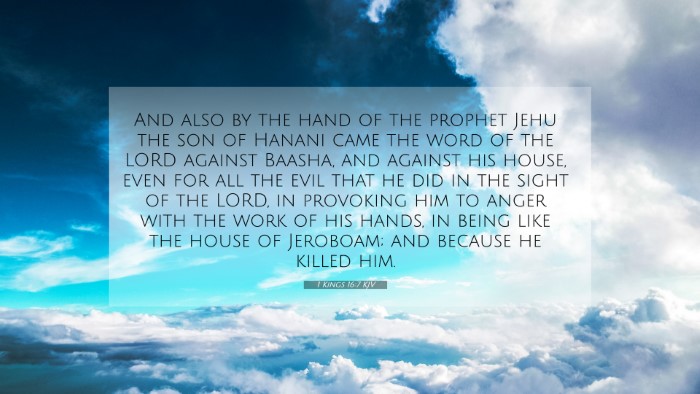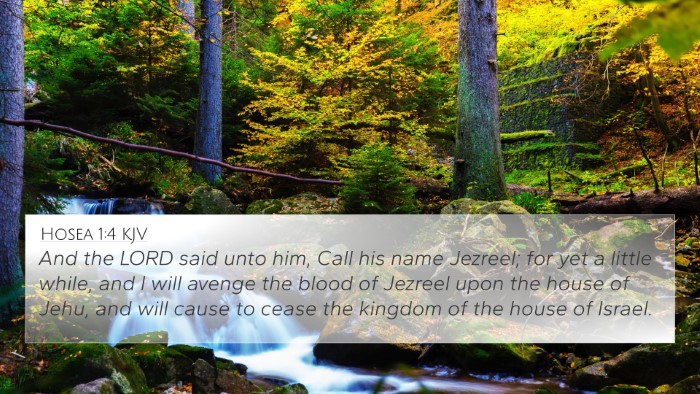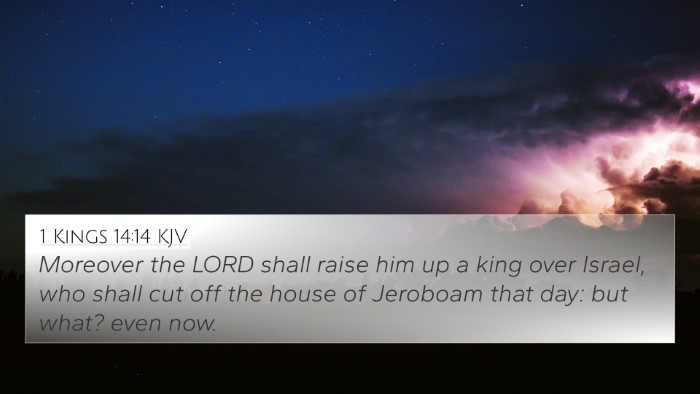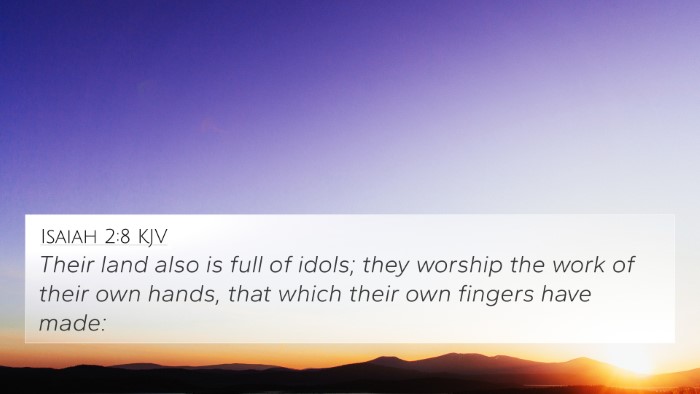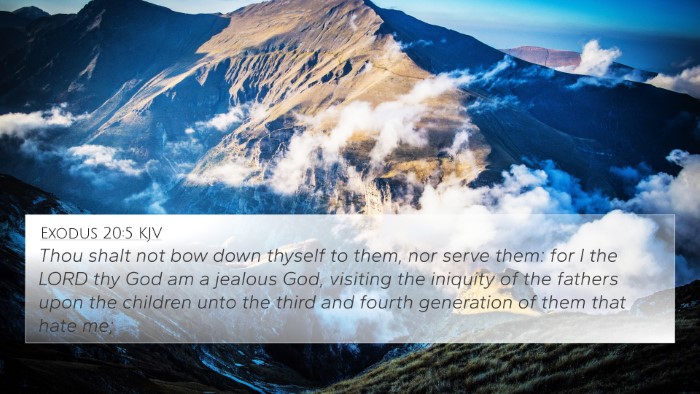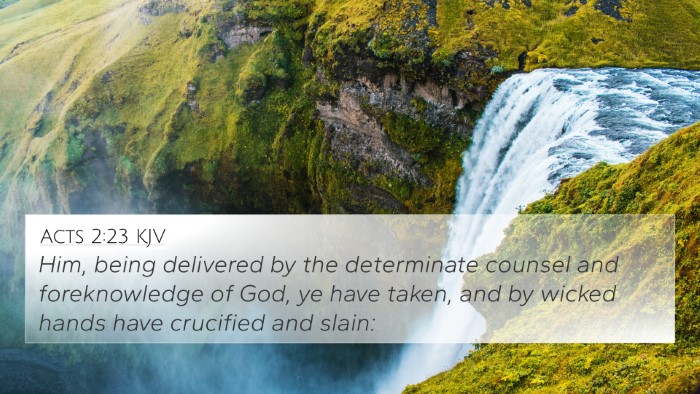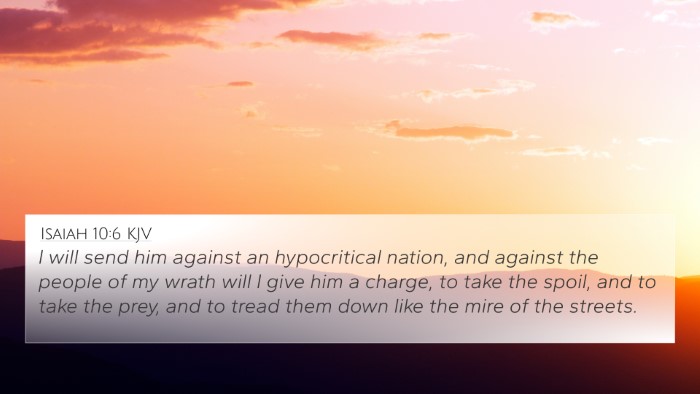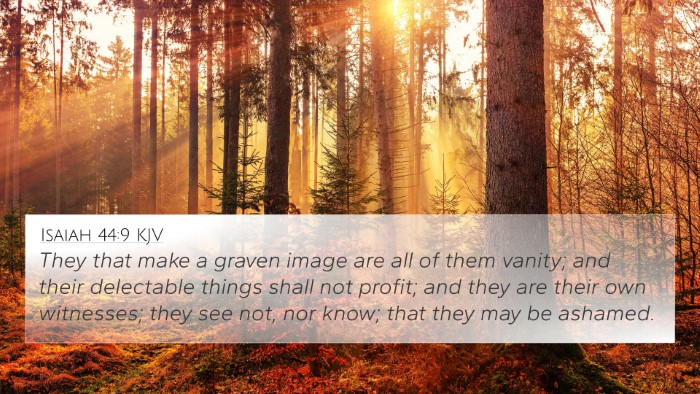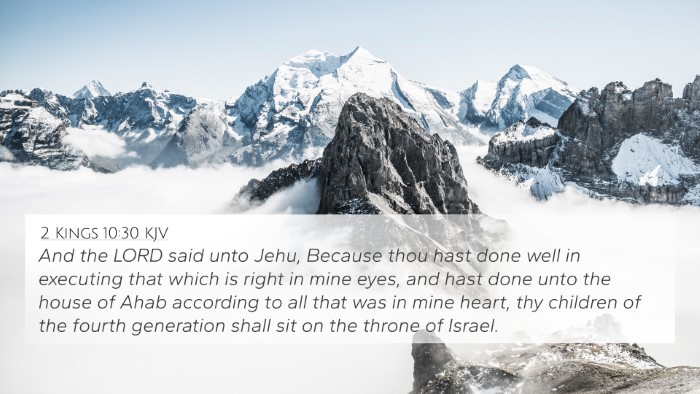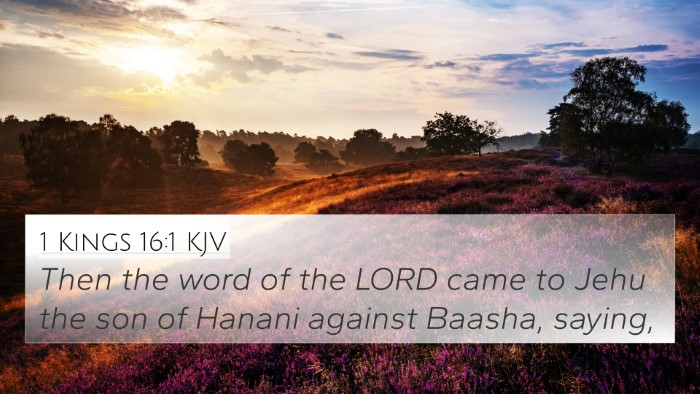Meaning and Interpretation of 1 Kings 16:7
Verse Reference: 1 Kings 16:7
This verse reads: "And also by the hand of the prophet Jehu the son of Hanani came the word of the LORD against Baasha, and against his house, even for all the evil that he did in the sight of the LORD, in provoking him to anger with the work of his hands, in being like the house of Jeroboam; and because he killed him."
Summary of Meaning
The verse serves as a divine declaration through the prophet Jehu concerning King Baasha of Israel. Here, the Lord takes issue with Baasha's actions, highlighting how his reign was marked by evil and idolatry, similar to that of Jeroboam. The mention of "provoking the Lord to anger" denotes the seriousness of Baasha's sins, leading to God's judgment upon him and his lineage.
Insights from Commentators
- Matthew Henry: Henry emphasizes the recurring theme of divine judgment in the history of Israel, illustrating how repeated disobedience brought forth prophetic warnings. He notes that Jehu's prophecy symbolizes God's continual outreach to call His people back to righteousness.
- Albert Barnes: Barnes points out that Baasha’s actions were not just personal sins but systemic, corrupting the entire northern kingdom of Israel. The phrase "work of his hands" implies the tangible results of his idolatry and the establishment of practices contrary to God's law.
- Adam Clarke: Clarke provides additional contextual details by associating Baasha with the dynasty of Jeroboam. He highlights that this could serve as a warning for future kings, linking their behavior with the nation's welfare and relationship with God.
Bible Verse Cross-References
- 1 Kings 14:10-11: Highlights God’s judgment on Jeroboam’s house for similar evils.
- 2 Kings 9:6-10: Connects to the prophecy of Jehu becoming the appointed instrument of God’s judgment.
- Hosea 1:4: Lists judgment against the house of Jehu for the bloodshed of Jezreel, another aspect of Baasha's lineage.
- 1 Kings 15:29: Discusses the evil acts of Baasha, tying his actions to the previous kings.
- 2 Chronicles 16:7-9: Refers to prophetic condemnation during the reign of later kings.
- Jeremiah 7:29-34: Emphasizes God's fierce anger against idolatry, echoing the sentiments towards Baasha.
- Revelation 2:5: The call to repentance parallels the call God gives to Israel through the prophets.
Thematic Connections
This verse relates deeply to several overarching themes within the Bible:
- The theme of divine judgment: A recurrent motif throughout both the Old and New Testaments where God judges His people based on their fidelity.
- Idolatry and its ramifications: Baasha's reign exemplifies how idolatry leads to social and spiritual decay.
- Prophetic warnings: The role of prophets as mediators between God and people is central to understanding biblical narratives of judgment and deliverance.
Conclusion
1 Kings 16:7 serves as a profound reflection on God's expectation of loyalty and righteousness from His people. The interconnectedness of biblical texts through cross-references fosters a deeper understanding of God's justice and mercy. By studying the connections between the verses, one gains insight into the historical and spiritual implications of disobedience and the call toward repentance.
Tools for Further Study
For those interested in delving further into the relationships between various scriptures, the following tools can aid in cross-referencing:
- Bible concordance for tracing keywords and themes across chapters.
- Bible cross-reference guide featuring comparative studies of key verses.
- Cohesive resources for understanding the links between prophetic literature and historical accounts.
